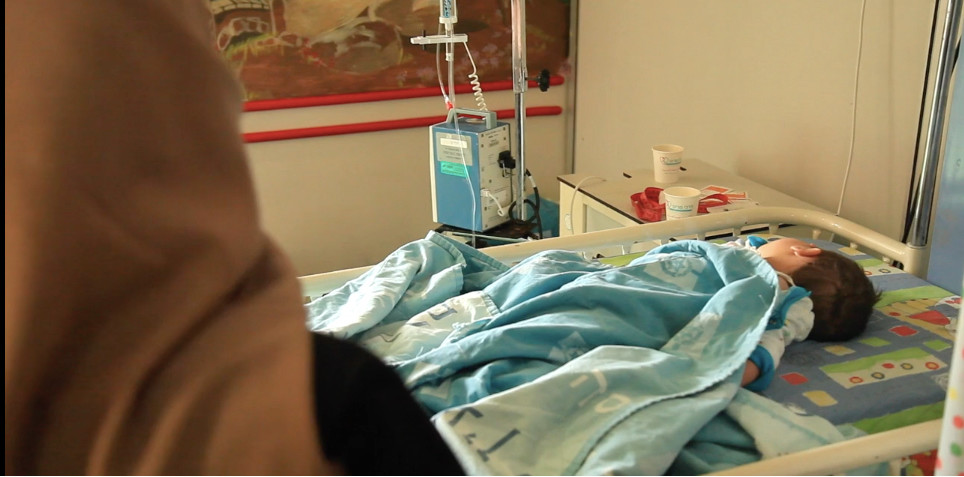Hadassah helps save lives of Syrian children
Hadassah Medical Organization (HMO) and the Baruch Padeh Poriya Hospital in Tiberias recently launched a unique collaboration through the IDF’s “Good Neighbor” program to save the lives of Syrian children and adolescents who suffer from complex and life-threatening heart abnormalities.
Fourteen Syrian children were treated at Hadassah’s Ein Kerem hospital in Jerusalem by a team of experts, as part of the “Good Neighbors” program, according to Ellen Hershkin, national president of Hadassah.
A joint team from Ein Kerem in Jerusalem and Poriya in Tiberias initially examined 20 Syrian children and teenagers with severe heart defects and determined that most of them could benefit from complex heart surgery.
Hadassah’s pediatric cardiologist, Dr. Julius Golander, who heads surgical evaluation at Ein Kerem, joined doctors from Poriya Hospital through IDF’s Good Neighbor program in Tiberias. Mothers from Syria brought their children with heart diseases to Tiberias, where doctors examined them and ascertained what treatment they were receiving in Syria.
“The special cooperation between the HMO and Baruch Padeh Poriya Hospital was critical to saving the lives of these children,” Dr. Golander said. “HMO utilized its state-of-the-art Pediatric Cardiac Surgery Department and Pediatric Intensive Care Unit at Hadassah Hospital Ein Kerem for this very special humanitarian project. The children, some of whom have never been properly treated or examined before, came to Jerusalem recently for the complex surgery and catheterizations at HMO and are continuing their aftercare at the Pedah-Poriya Medical Center in Tiberias.”
“We made an initial diagnosis and built a treatment plan for anyone who needed cardiac intervention, whether catheterization or surgery at Hadassah Hospital Ein Kerem,” Dr. Golander adds. “The children were suffering from a wide variety of significant heart abnormalities, including ventricular defects and transposition of the great arteries. Their chances of surviving without medical intervention were slim to none.
“In the dead of night, 14 Syrian women brought their children to us for medical assistance. Two-year-old Layal had a congenital heart defect, a hole in her heart which would have likely been diagnosed in a prenatal ultrasound in a Western country.
“Perhaps it would have been found in Syria, too, under normal circumstances. According to statistics from the Syrian Ministry of Health, Syria was on an upswing of medical care before the current crisis and the decimation of the health care system. What was clear was no way Layal’s heart could be repaired in Syria.
“This ‘hole in the heart’ was an atrial septal defect (ASD), an abnormal opening in the wall between the upper chambers of the heart. If left untreated, this condition would produce excess flow to the lungs causing irreversible lung damage, dilate her heart and probably shorten her life.
“Layal’s mother, Reem, a farmwife, knew that Layal wasn’t growing like her three siblings. There was something different also about her energy level.”
Although Reem knew that every child was different, she made an appointment with the doctor at her local health care center. The doctor held the stethoscope to Layal’s chest for a long time, and she knew there was a problem. When the doctor finally said, “It’s her heart,” Reem was distraught.
She then learned from women in her village that there was hope across the border.
“Needless to say,” Dr. Golander said, “their identities were concealed to protect their security.”
Since June 2016, the Israel Defense Forces has quietly been offering health care to Syrians across the border. Help was initially for those wounded in the war, but was later expanded to include advanced life-saving medical care available in Israel.
Dr. Golander recalls, “When I told Reem, ‘We can help your daughter,’ Reem didn’t need the Arabic translator to tell her what I meant.”
Source: Hadassah

 44.0°,
Mostly Cloudy
44.0°,
Mostly Cloudy 




